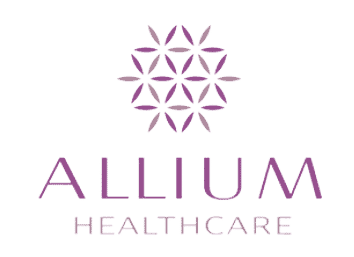Rehabilitation
Recovery begins here
At Allium Healthcare, rehabilitation dimensions overlap and coordinate to deliver effective treatments for a functional and fulfilling lifestyle.
Our team of senior physiotherapists, occupational therapists, dietitian, speech therapist and medical social worker work together with you to deliver a comprehensive assessment and management programme to help you achieve optimal health.
Our allied health professionals provide both inpatient and outpatient rehabilitation care within Allium Care Suites. Our acute rehabilitation programme is supported by 24-hour nursing care and Care Concierges who have been carefully selected for their experience, expertise and compassion in caring for the elderly.
Welcome to your journey to functional wellness.
Discover your potential
Each body is different, therefore each rehabilitation must be different.
We care for individuals whose stories inspire us. Our individualised rehabilitation plans adapt to each elder’s specific impairments and functional needs. Our therapy combines science, art and a creative spirit to deliver good long-term outcomes with the highest possible levels of functional capability.
- NEUROREHABILITATION
- ORTHOPAEDIC THERAPY
- DEMENTIA CARE
- DAY REHABILITATION
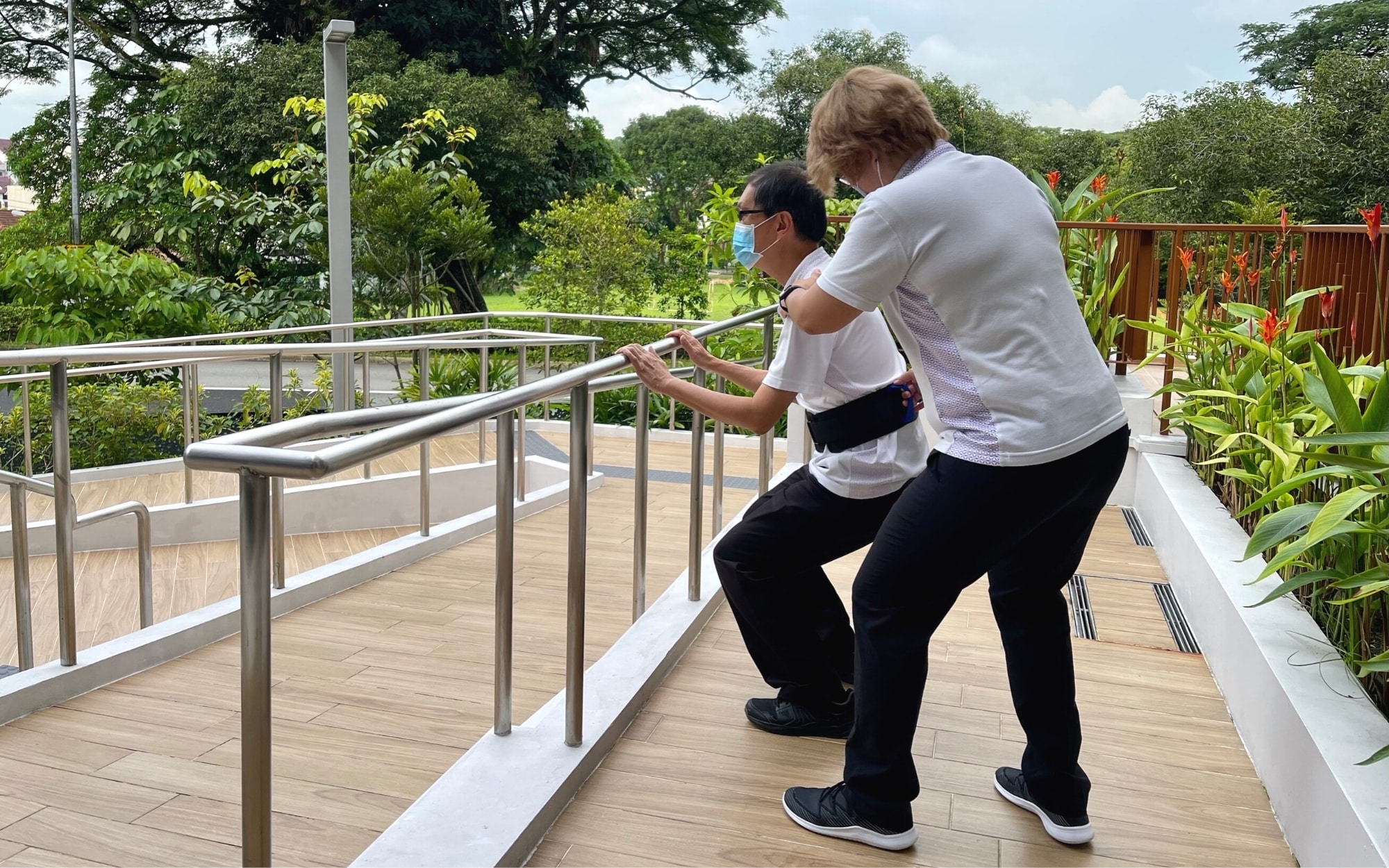
Renewal and reablement
Neurological rehabilitation specialises in the holistic management of various conditions including stroke, dementia, Parkinson’s disease and traumatic brain injury. The various interventions aim to improve mobility in affected body parts and performance in daily living.
Physiotherapy
- Trunk and lower limb motor learning
- Balance and gait recovery
- Functional strength training
- Endurance training
- Pain Management
Additional Features
- Nutritional counselling
- Aphasia rehabilitation
Occupational Therapy
- Trunk and upper limb motor retraining
- Activities of daily living (ADLs) retraining
- Social and behavioural skills retraining
- Cognitive retraining
- Visual neglect training
- Assistive device prescription and training
- Home environment modification
- Community reintegration
- Workplace modification
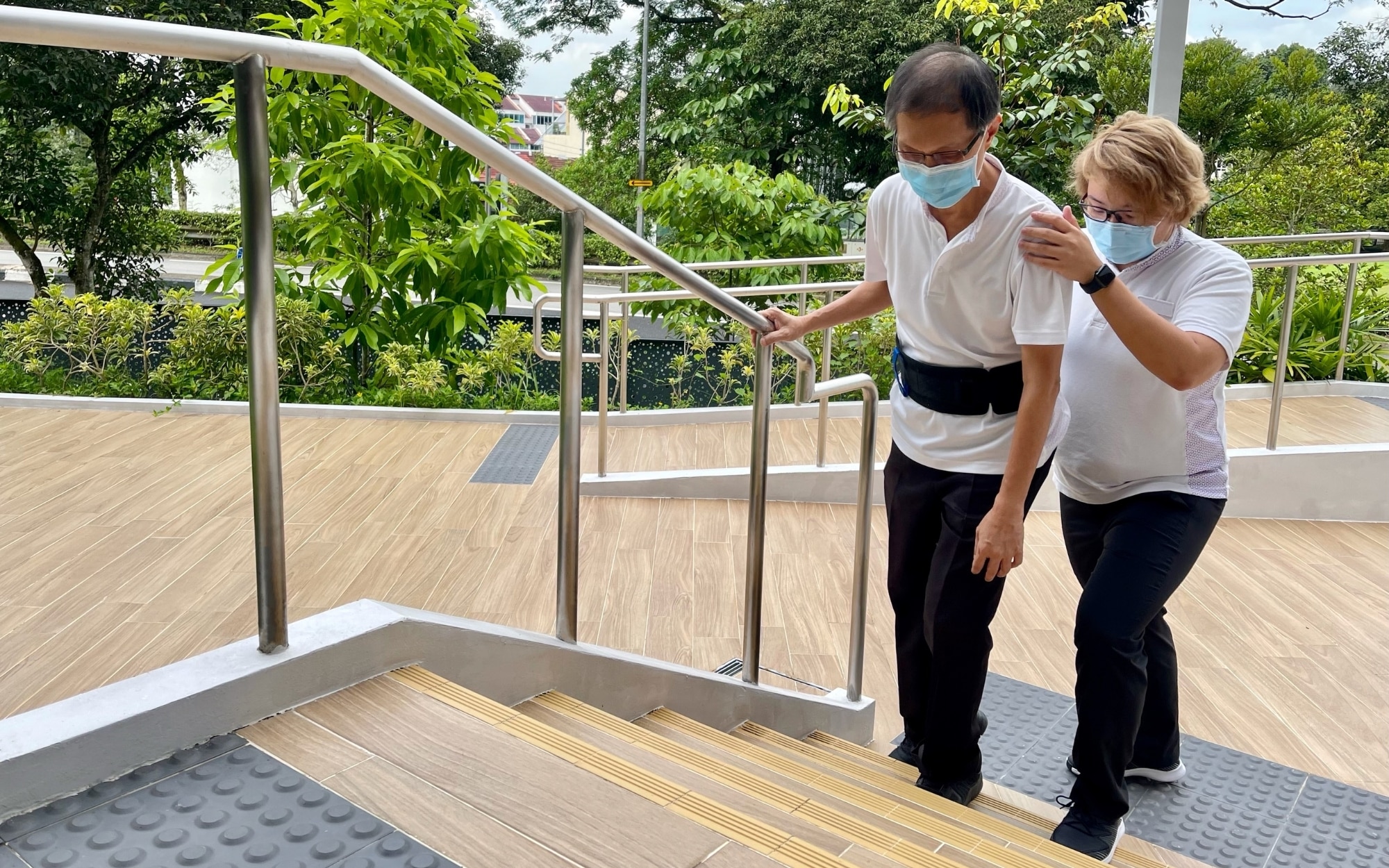
Functional restoration
Orthopaedic rehabilitation helps elders recover from injuries related to falls, fractures, joint replacement and other orthopaedic surgeries. It aims to restore range of motion, balance and functional strength post injury.
Physiotherapy
- Functional strength training
- Stretching exercises
- Balance training
- Pain management
Occupational Therapy
- Activities of daily living (ADLs) management
- Assistive devices prescription and training
- Home environment modification
- Falls prevention
- Joint protection education
- Community mobility training
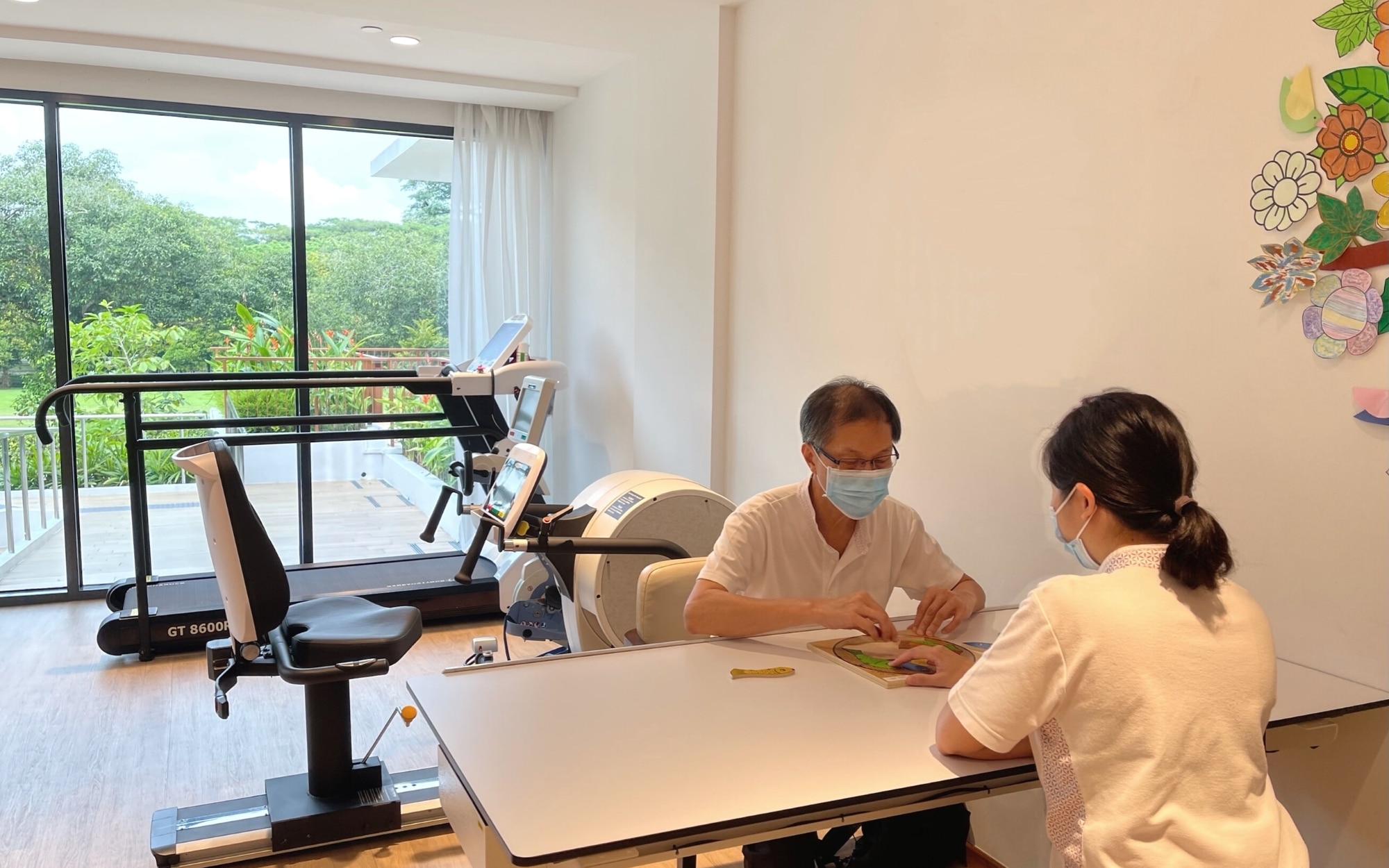
Creative care
Cognitive rehabilitation is the process of remediation or compensation of cognitive skills that may have been lost due to a condition. Cognitive skills include attention, concentration and memory, safety awareness, problem solving, organisation and planning.
Cognitive Stimulation Therapy (CST) is one evidence-based intervention within our dementia care plans. An effective, non-drug treatment, CST delivers a range of multisensory experiences across 14 sessions in small groups or as a private session. Each session focuses on a different theme that are culturally relevant to stimulate new thoughts and processes through self-learning in an encouraging environment.
Cognitive
- Modified Cognitive Stimulation Therapy (CST)
- Behavioural management
- Routine establishment
- Adaptive equipment prescription
Physical
- Individualised strengthening exercise
- Individualised aerobic exercise
Additional Features
- Morning and afternoon group activities
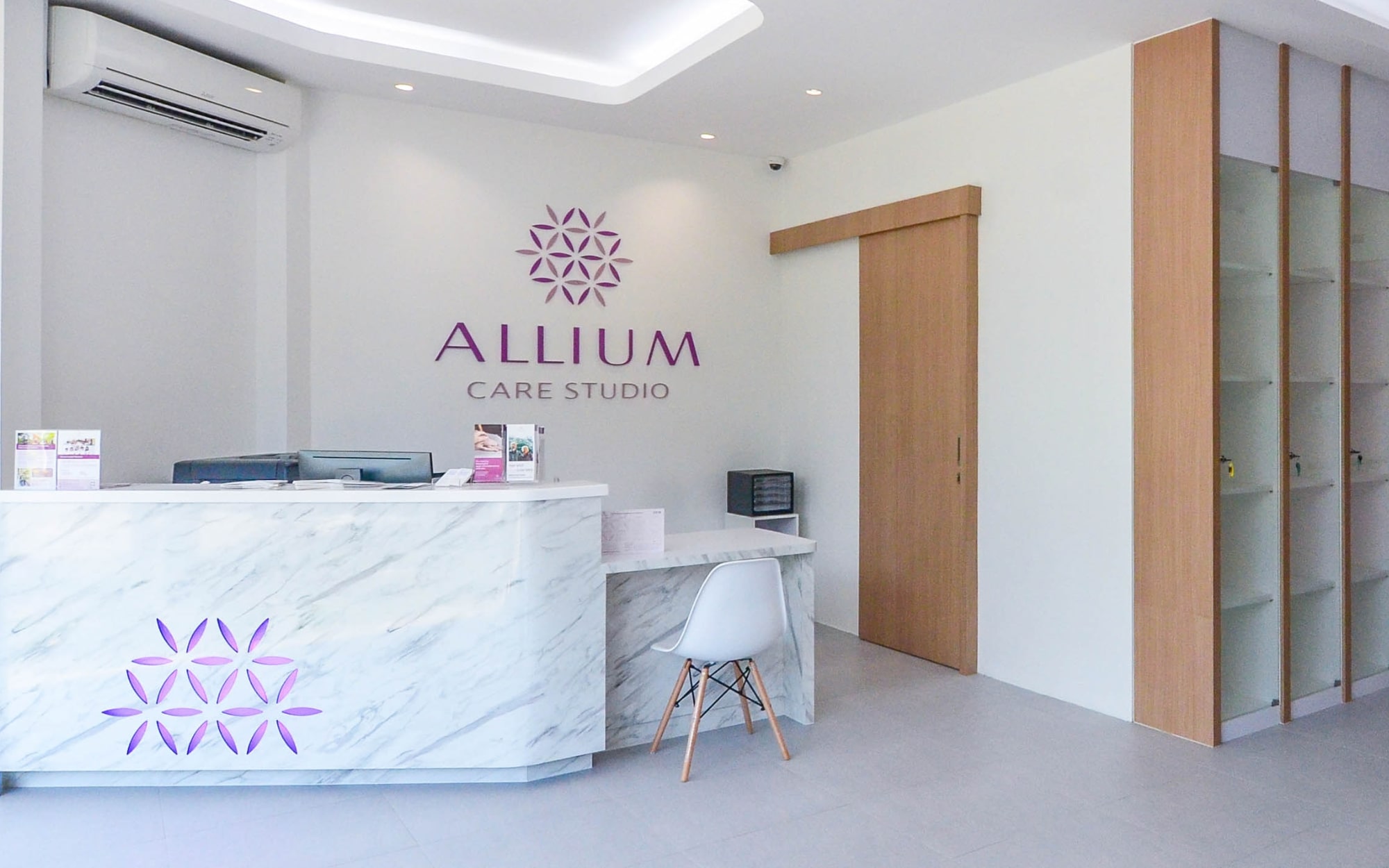
Functional wellness
Our day rehabilitation programmes are tailored to individual needs, enabling elders to achieve and maintain optimal functional capability for a fulfilling lifestyle.
PHYSIOTHERAPY
- Sports injury management
- Musculoskeletal rehabilitation
- Neurological rehabilitation
- Cardiac rehabilitation
- Respiratory health and fitness
- Women’s health
- Exercise prescription
- Caregiver training
- Equipment prescription
OCCUPATIONAL THERAPY
- Basic activities of daily living (BADL) and instrumental activities of daily living (IADL) assessment and retraining
- Memory, orientation and cognitive stimulation activities
- Stroke rehabilitation
- Upper limb rehabilitation
- Powered mobility training
- Community reintegration
- Caregiver training and assessment
- Assistive devices prescription and training
A better tomorrow
Supplementary therapies at Allium Healthcare complement our core rehabilitation services. Through our comprehensive suite of rehabilitation therapies, our focus is on enriching your way of life. Every day at Allium Healthcare brings you closer to functional wellness.
- POSTOPERATIVE CARE
- HYDROTHERAPY
- ADVANCED NEUROREHAB
- MUSCULOSKELETAL REHAB
- HOME THERAPY
- DIETETICS
- MEDICAL SOCIAL WORK
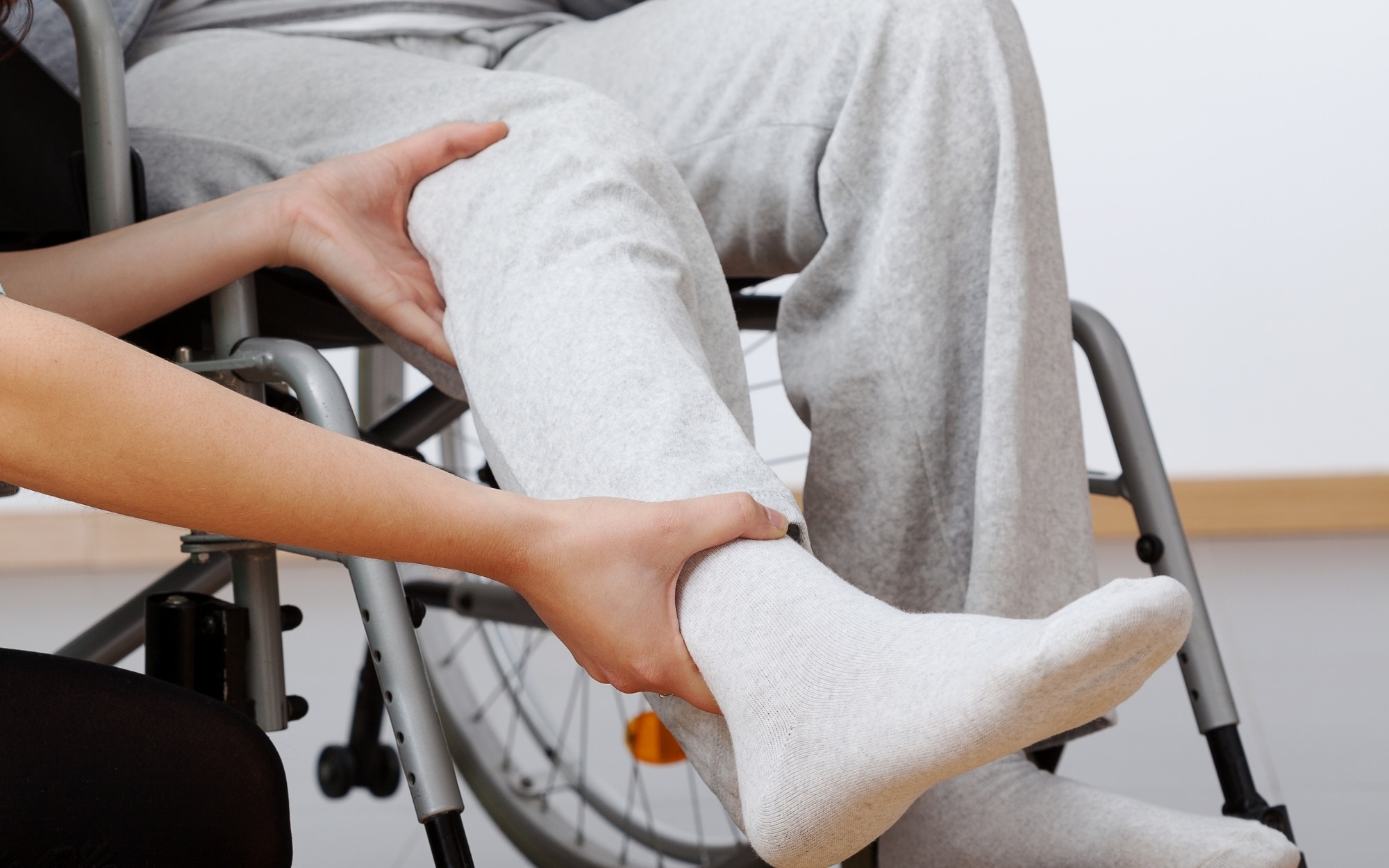
Move to heal
Rehabilitation following surgery is a delicate passage requiring experience and expertise. Our skilled senior physiotherapists and occupational therapists provide effective, long-term outcomes to assist the recovery and restoration of body functions.
Therapy Components
- Pain management
- Restoring joint range of motion
- Early mobilisation
- Progressive resistance training
- Gait retraining
- Improve mobility and flexibility
- Improve proprioception and balance
- Activities of daily living (ADLs) retraining
- Caregiver training
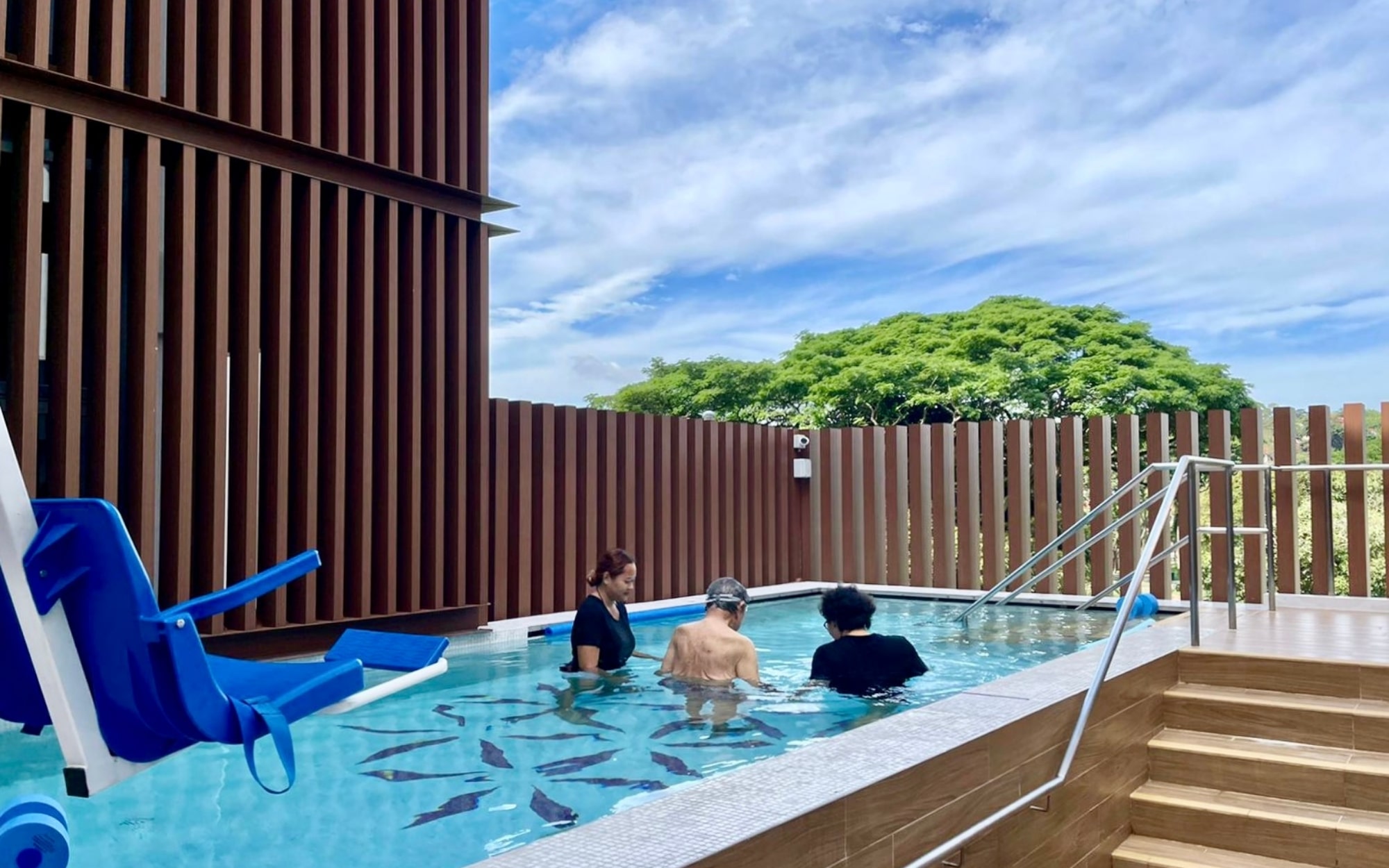
Healing through water
Hydrotherapy is the union between water and physiotherapy. It is a form of exercise in warm water and an effective treatment for elders with neurologic and musculoskeletal conditions such as stroke, Parkinson’s disease, arthritis, lower back injuries and chronic pain. The buoyancy, warmth, hydrostatic pressure, drag and turbulence creates a unique environment for rehabilitation, to achieved movements unattainable with land-based therapy.
Each hydrotherapy session is led by two members of the allied healthcare team; a physiotherapist and therapy assistant. Exercises are tailored to individual needs to complement or facilitate a return to land-based rehabilitation.
Therapy Benefits
- Pain relief and muscle spasm treatment
- Improve blood flow and circulation
- Enhance muscle activation
- Increase flexibility and mobility
- Restore lost movement patterns
- Develop motor control
- Improve muscular strength
- Build cardiovascular endurance
- Achieve functional independence
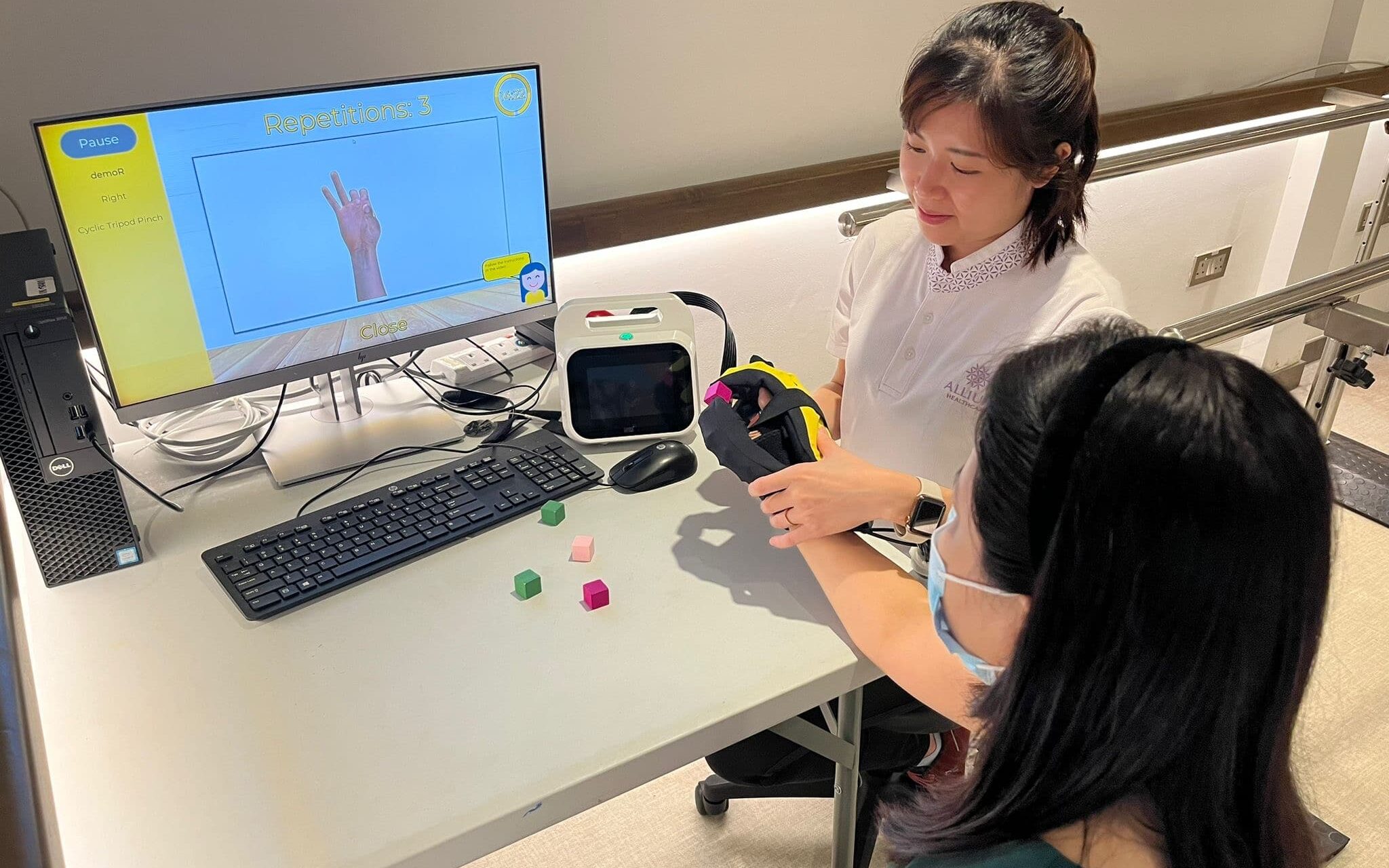
Relearn and recover
Advanced neurorehabilitation enhances recovery from neurological conditions, addressing motor, cognition and sensory functions. We pair the EsoGLOVE Pro by Roceso Technologies, a lightweight, portable hand rehabilitation exoskeleton, with neuromuscular electric stimulation. Pneumatic soft robotic technology promotes relaxation in hand muscles and restoration of hand movements. Rehabilitative technology that facilitates relearning and recovery.
THERAPY COMPONENTS
- Functional task trainings
- Motor function recovery
- Cognition and sensory retraining
- Passive and active exercises
- Active-assisted exercises
- Repetition and intensity techniques
- Mirror therapy
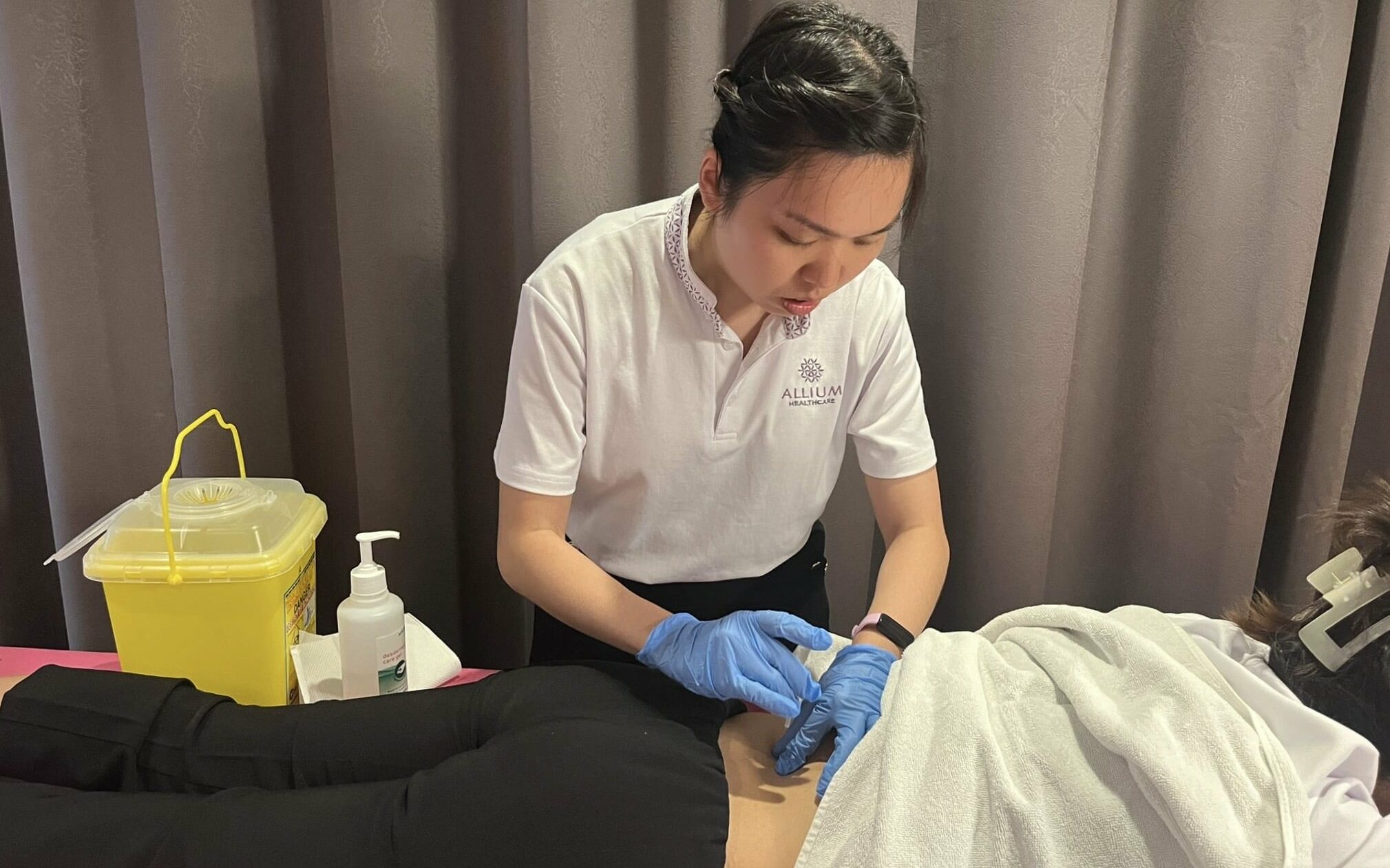
Enhanced functional restoration
Musculoskeletal rehabilitation targets injuries and disorders affecting muscles, bones, joints, and connective tissues, often causing persistent pain and muscle tightness that impact daily function. Our dry needling approach addresses myofascial pain and movement impairments. Distinct from acupuncture, it focuses on specific muscular issues by inserting thin needles into trigger points to release tension and alleviate pain.
Specifically trained in dry needling, our physiotherapist delivers interventions to promote recovery and enhance quality of life. Experience physiotherapy that restores, renews, and resumes functional wellness.
THERAPY BENEFITS
- Trigger point targeting
- Pain relief
- Improved muscle function
- Enhanced range of motion
- Individualised treatment
- Minimal discomfort
TARGETED CONDITIONS
- Myofascial pain syndrome
- Chronic muscle tension
- Tendonitis
- Frozen shoulder
- Lower back pain
- Hip pain
- Knee pain
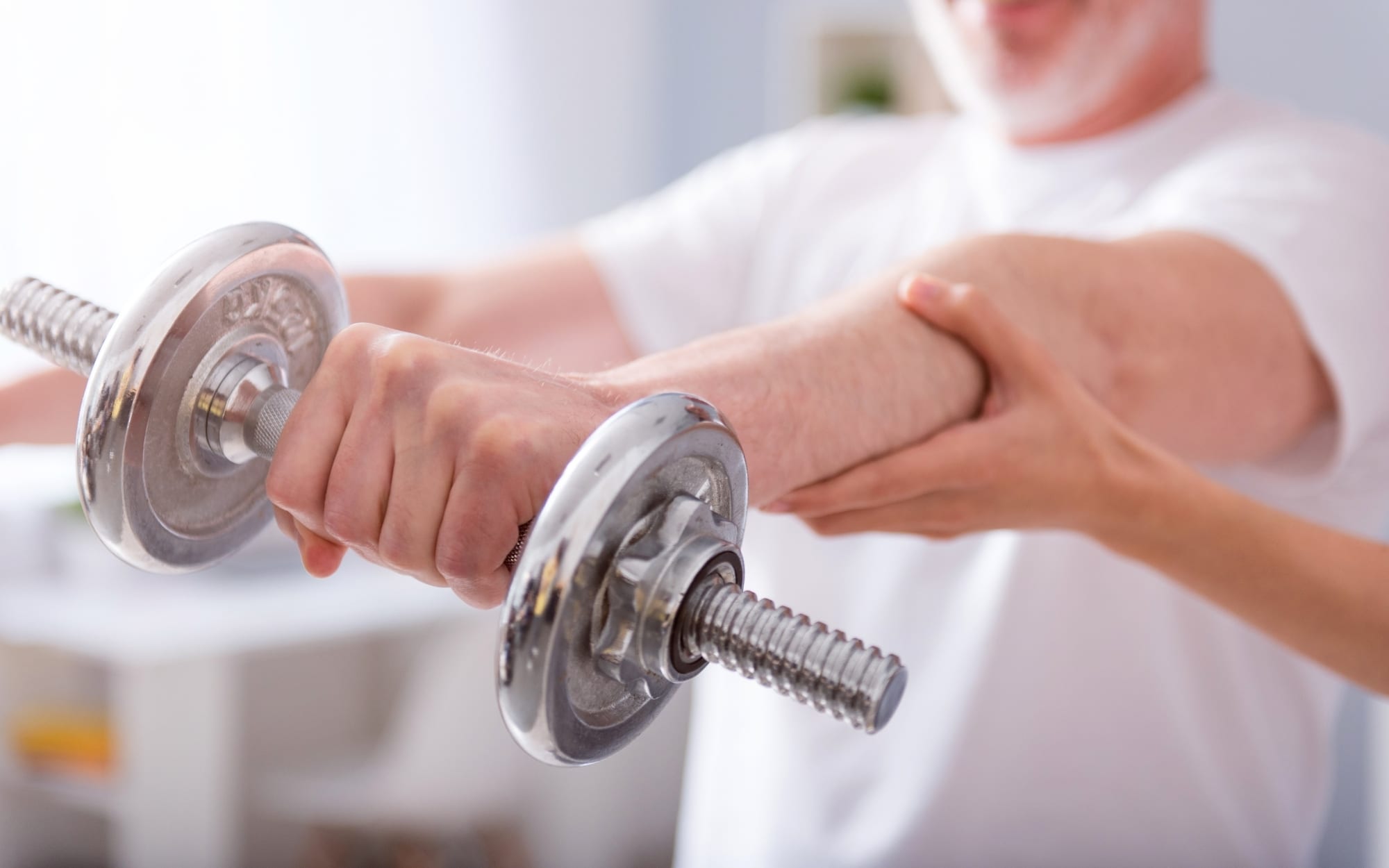
Recovery at home
Our home therapy provides rehabilitation treatment to support recovery of functional abilities. Our allied health professionals work with you to create a personalised care programme that focuses on treatment specific to your physiotherapy or occupational therapy needs. They travel to your home, empowering you to enjoy a higher quality of life in the comfort of your home.
Home therapy help elders with recovery after surgery, injury or at risk of falling, and elders with chronic conditions improve or maintain functional wellness.
Physiotherapy
- Therapeutic pain management
- Post-hospitalisation rehabilitation
- Customised exercise programme
- Fall prevention strategies
- Chronic disease management
Occupational Therapy
- Activities of daily living (ADL) retraining
- Stroke rehabilitation
- Upper limb rehabilitation
- Powered mobility training
- Cognitive activities
- Assistive devices prescription and training
- Home assessment and modification plan

Healing through nutrition
Dietetics has an integral role in supporting elders in their recovery, rehabilitation and reablement. Nutrition in a rehabilitation environment helps to improve functional levels for effective rehabilitation outcomes. Good nutrition also improves quality of life for elders living with other health issues such as raised cholesterol, diabetes and mental health conditions.
Our rehabilitation dietitian specialises in working with older adults, using advanced scientific information, to support a wide range of nutritional needs, from malnutrition, altered taste, texture requirements, to specialist tube feeding regimes.
Therapy Components
- Nutritional status assessment
- Identification of special dietary needs
- Individualised nutrition plan
- Provision of medical nutritional therapy
- Advocacy for best-practice care
- Multidisciplinary care management
- Supervision of meal preparation and service
- Review of nutritional status
- Monitoring treatment outcomes
- Preventive nutritional counselling
- Caregiver education

Your helping hand
Medical social workers are key contributors in the rehabilitation and recovery care continuum. They help elders and their families understand a particular condition, supporting them through the emotional and social responses to illness and treatment. Our medical social worker has journeyed with many families through challenging situations, providing invaluable support and advice to improve well-being and fulfil basic and complex needs.
Support Services
- Initial screening and evaluation
- Comprehensive psychosocial assessment
- Collaborative care planning
- Help with decision-making
- Case management for complex needs
- Transition of care
- Crisis intervention
- Collaborate with healthcare team members
- Continuity and care ordination
Transforming lives
We care for you with wellness at the core of our care delivery. Discover the unexpected through stories that inspire independence, hope and fulfilment.
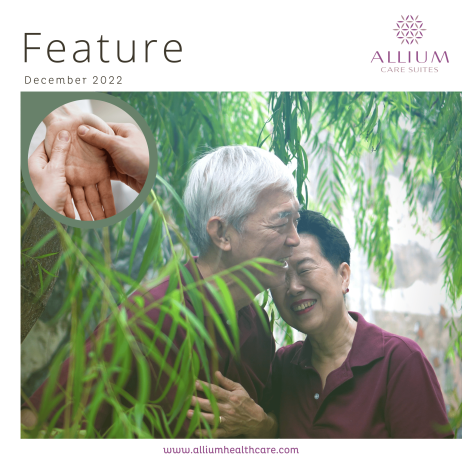
Namaste Care
In the tranquil ambience of the Wellness Studio overlooking verdant views, Namaste therapy sessions support our residents with moderate to advanced dementia in meeting their sensory and emotional aspirations. Mr L joined our Namaste Care programme in July this year. Through social connections with therapy assistants and other participants, Mr L displayed raised awareness of his surroundings and progressively increased spontaneous verbal communication.
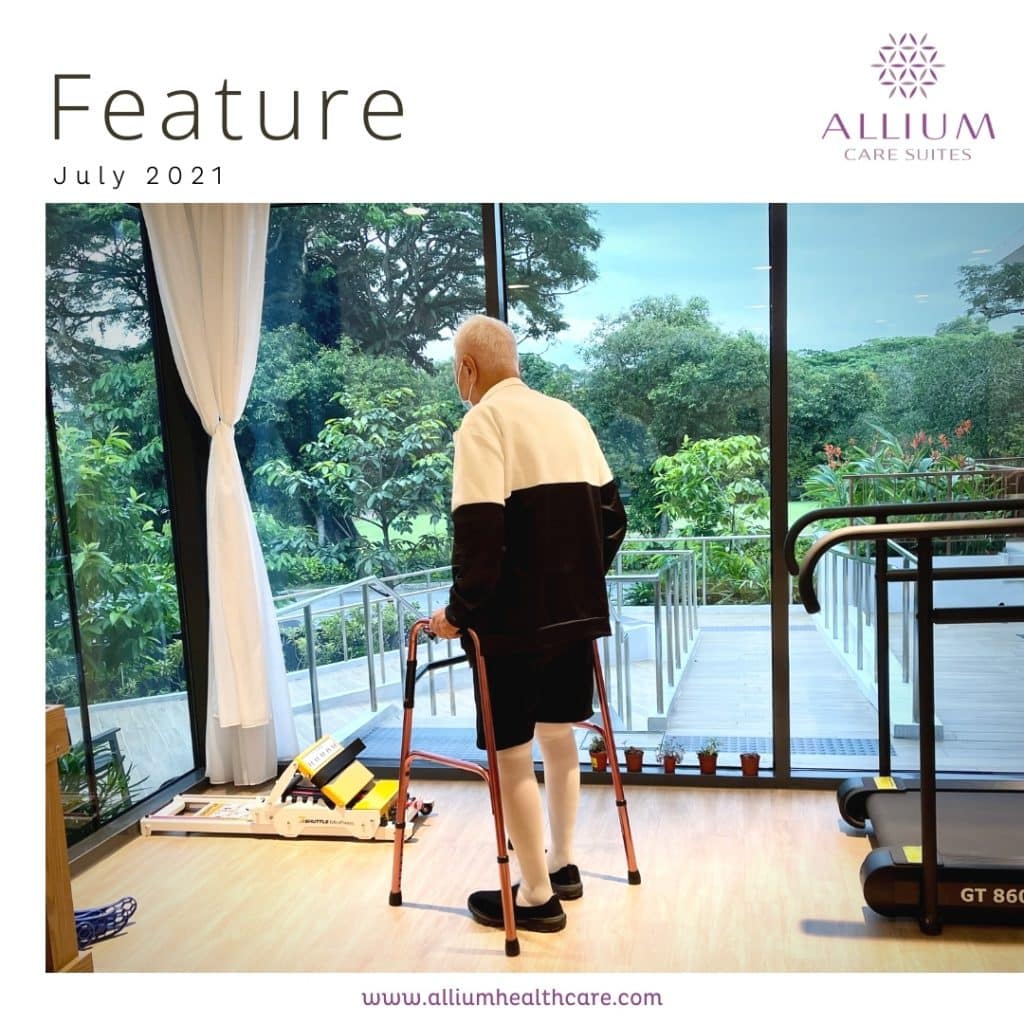
Postoperative Care
Mr D arrived at Allium Care Suites after a third surgery to his right hip. A year prior, he suffered a bad fall, followed by a series of events including postoperative cardiac complications. At his initial rehabilitation assessment, Mr D displayed symptoms of mild cognitive impairment. In view of the complexity of conditions, our allied health team created a comprehensive recovery plan, integrating physiotherapy and cognitive care components.
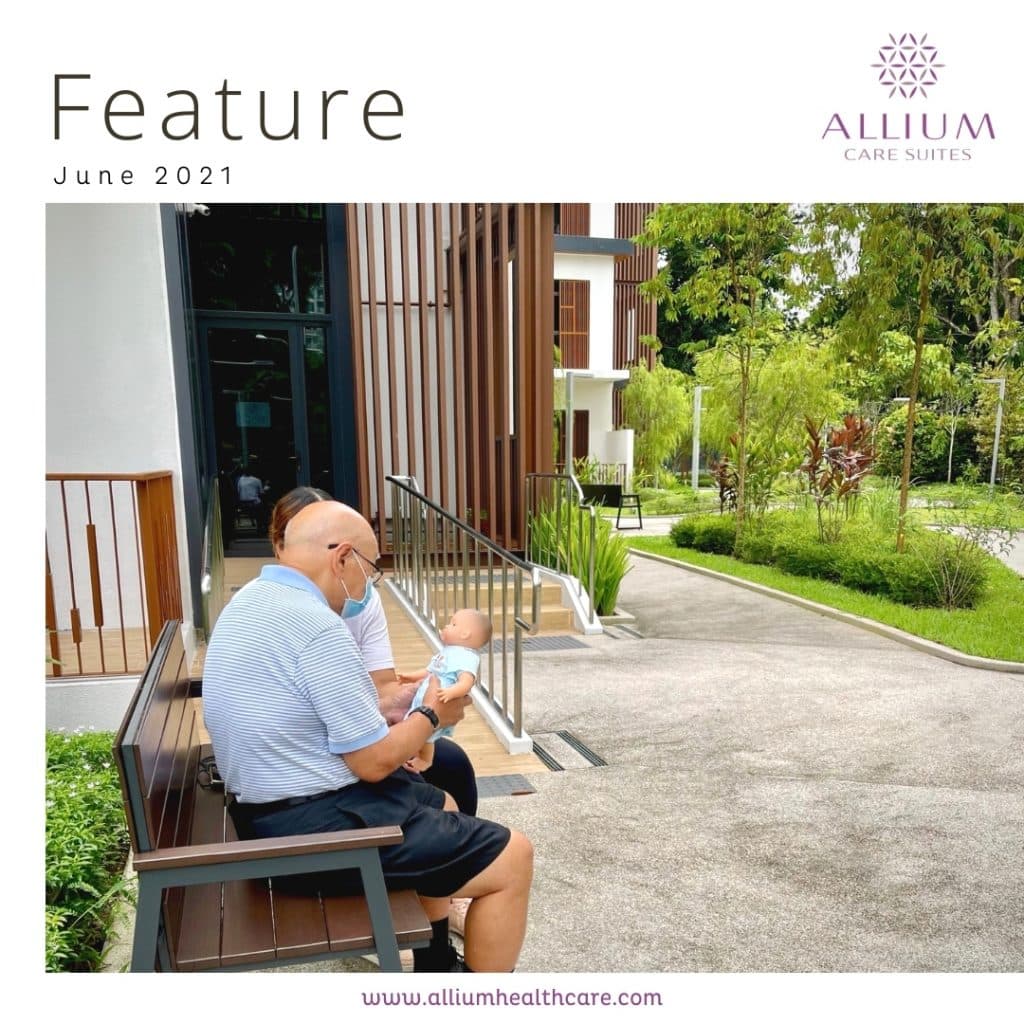
Cognitive Care
Mr L arrived at Allium Care Suites at the beginning of 2021. Diagnosed with dementia, he displayed both cognitive and behavioural symptoms, namely agitation, confusion and aggression. Mr L was frequently disorientated and in distressed need to locate misplaced belongings and a way out of his household.
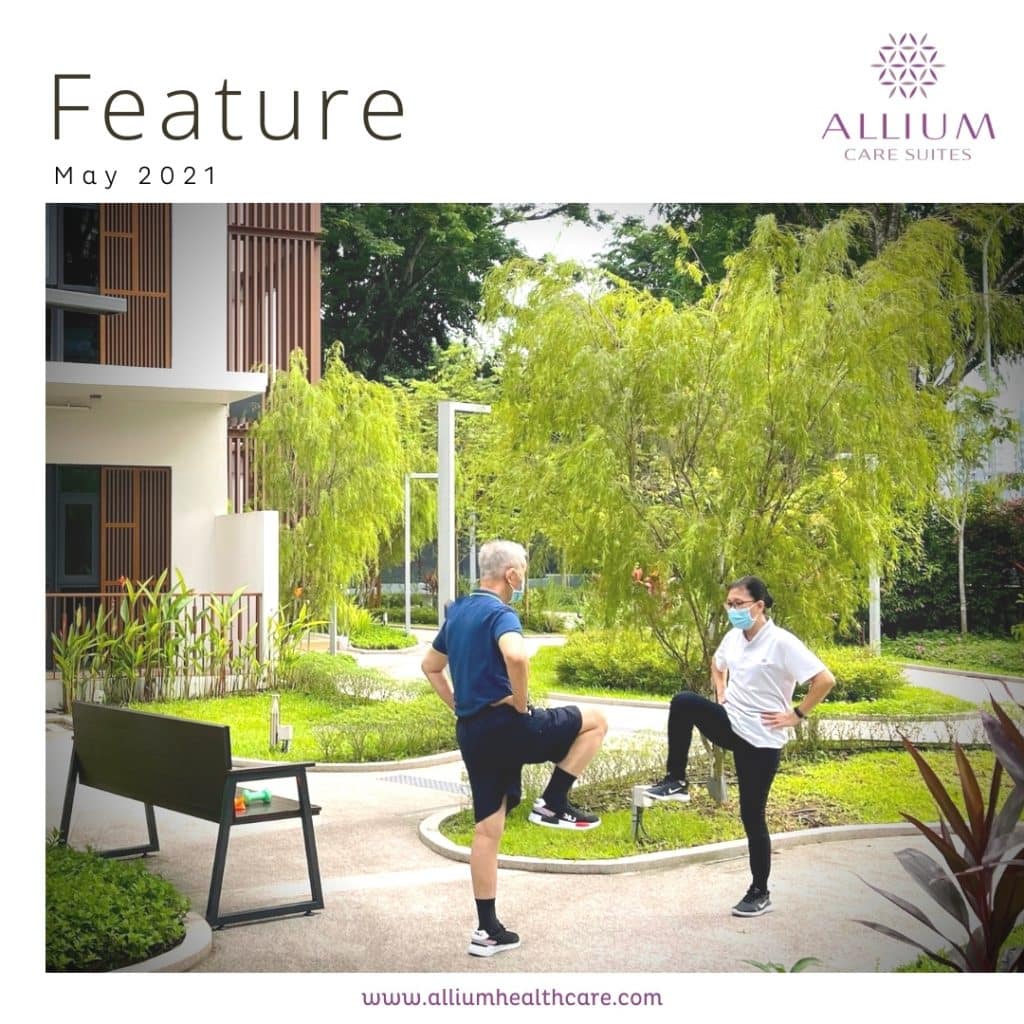
Cognitive Therapy
Mr G arrived at Allium Care Suites in early 2020, diagnosed with dementia. In the beginning, he demonstrated a conflict between the need to be cared for and the want to feel independent. Mr G was hesitant to participate in rehabilitation activities and spent much of his time in his suite, disconnected from social interaction.
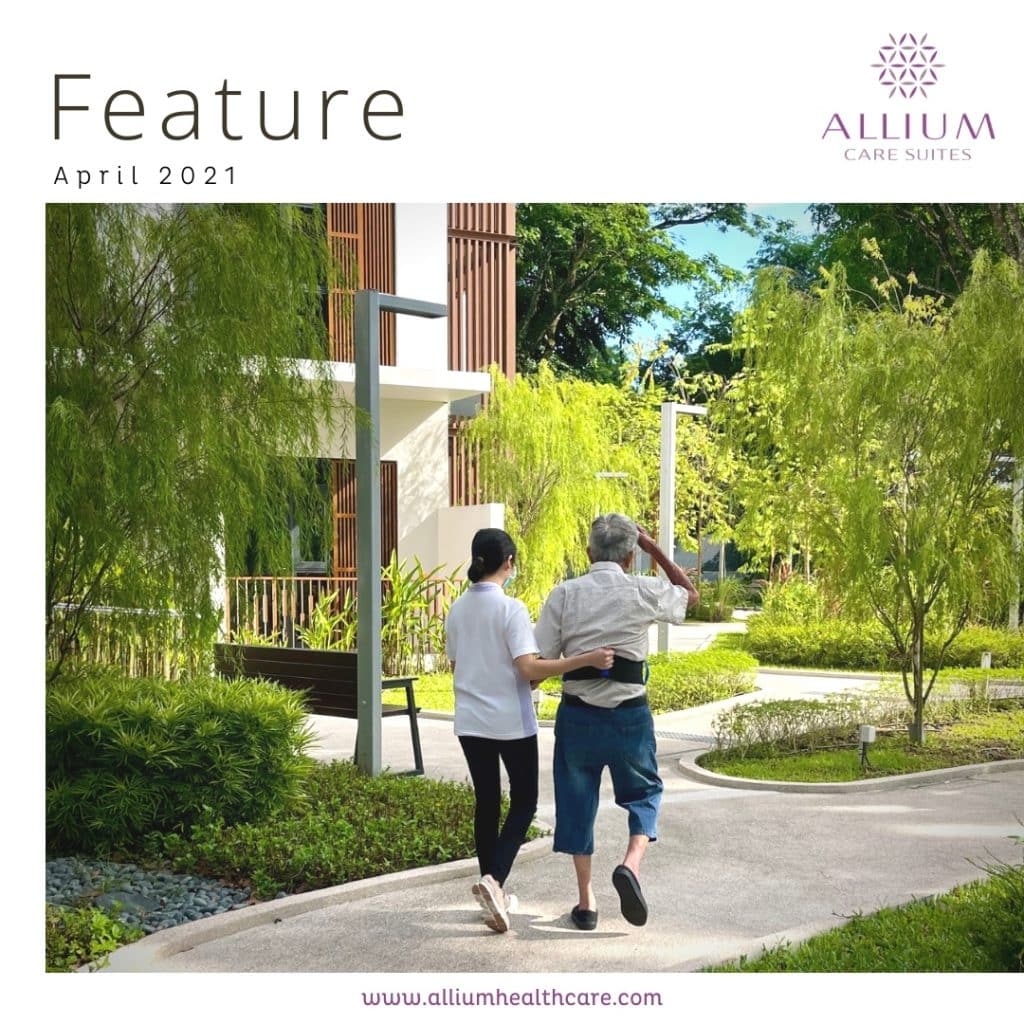
Functional Rehabilitation
Meet Mr O, our 77-year-old resident, who suffered a bilateral stroke in January this year. Mr O led an active and industrious life as an automotive technician. Overnight, he was suddenly aphasic and unable to stand or walk. Upon hospital discharge, Mr O arrived at Allium Care Suites.
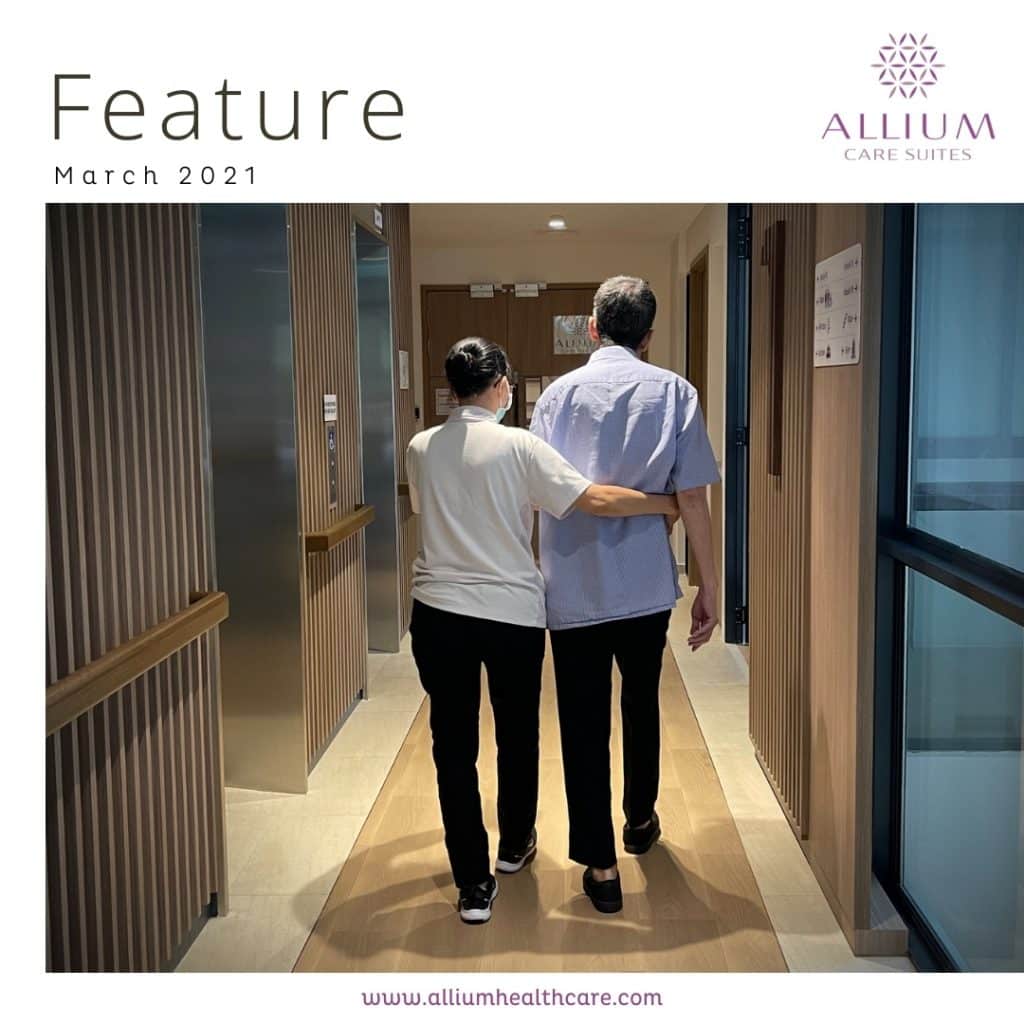
Functional Restoration
Mr C arrived at Allium Care Suites in a dismal state of function at 60 years old. He was a wheelchair user after suffering a fall at home and experienced a long hospital stay. At an early age of 50, Mr C was diagnosed with Parkinson’s Disease with neuropsychiatric symptoms. With the passage of time, the progressive nature of Parkinsonian symptoms left Mr C’s family overwhelmed by his care needs and helpless.
